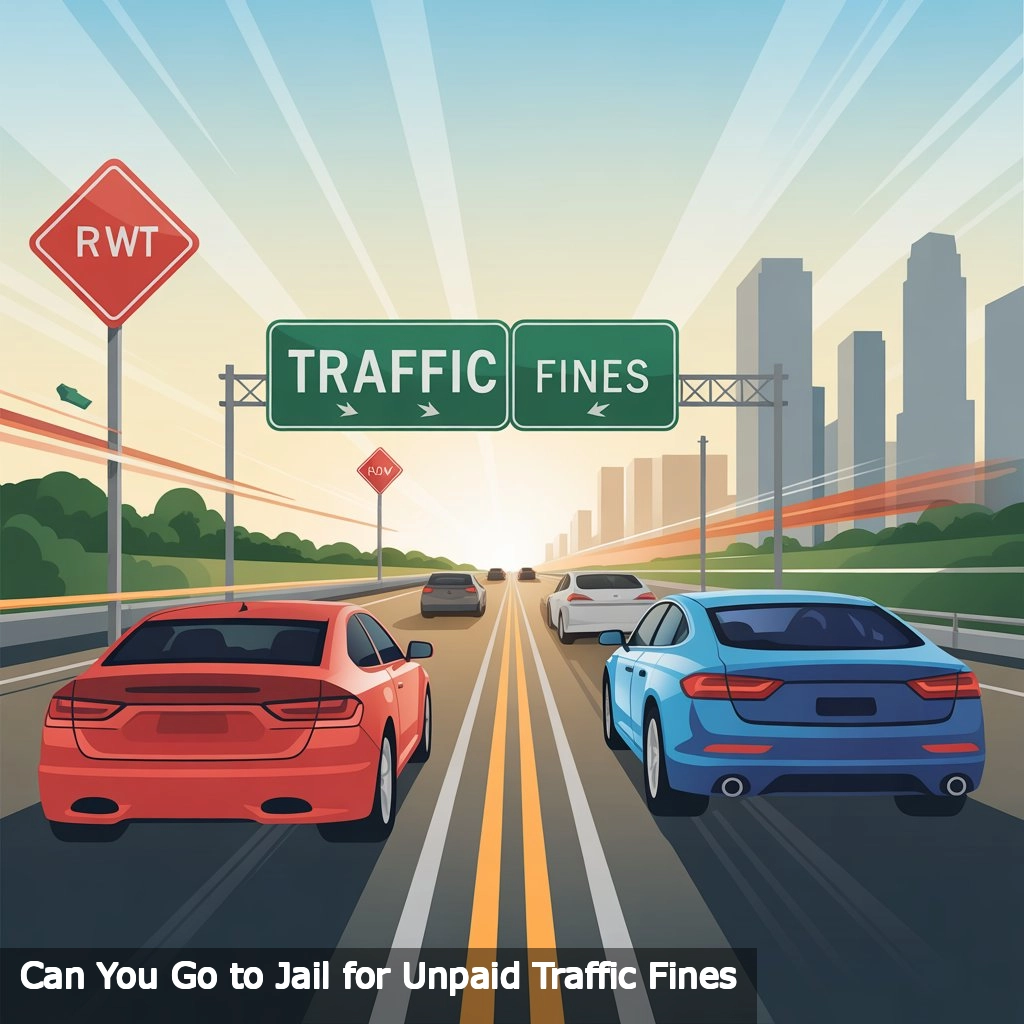Can You Go to Jail for Unpaid Traffic Fines
Can you go to jail for unpaid traffic fines? Learn how states handle unpaid tickets, what legal risks exist, and how to avoid penalties or jail time.

Can You Go to Jail for Unpaid Traffic Fines?
No one enjoys getting a traffic ticket, but what happens if you simply don’t—or can’t—pay it? Many drivers wonder: Can you go to jail for unpaid traffic fines? The short answer is sometimes, yes—but the circumstances matter greatly.
In the U.S., unpaid fines can lead to escalating consequences, from late fees and license suspension to court summons and, in rare cases, jail time. Understanding how these penalties work under American driving laws can help you avoid serious legal trouble.
How Unpaid Traffic Fines Can Lead to Jail Time
To answer “Can you go to jail for unpaid traffic fines?”, we have to look at how states handle unpaid debts to the court.
When you receive a traffic ticket, you’re given a due date to pay or contest the fine. If you ignore it, the court can issue additional penalties. Initially, this may include:
-
Increased fines or late fees
-
License suspension by your state’s Department of Motor Vehicles (DMV)
-
A court summons or bench warrant
Failing to appear in court when ordered can trigger an arrest warrant—not for the fine itself, but for contempt of court or failure to comply with a legal order. In such cases, yes, you can go to jail for unpaid traffic fines indirectly, because ignoring the system becomes a criminal offense.
Jail Is Rare—but Possible
Most states don’t jail people solely for owing money. The U.S. Supreme Court has ruled that imprisoning individuals just for unpaid fines violates constitutional rights if they are unable to pay. However, jail becomes possible in certain conditions:
-
Willful nonpayment: If a judge determines you can pay but are refusing to, incarceration can be used as enforcement.
-
Failure to appear in court: Ignoring court orders can lead to contempt charges.
-
Multiple unpaid violations: Repeated offenses and ignored citations may lead to cumulative penalties that include brief jail time.
So, while it’s rare, going to jail for unpaid traffic fines is a real risk when you ignore tickets entirely.
How States Differ on Traffic Fine Enforcement
Each state has its own process for collecting unpaid fines. For example:
-
California: The DMV may suspend your driver’s license, and unpaid fines can be referred to collections, severely affecting your credit.
-
Texas: The state can issue a “Failure to Appear” warrant, allowing arrest if you’re pulled over again.
-
Florida: Unpaid fines often result in license suspension, and reinstatement requires full payment plus administrative fees.
This means that depending on where you live, unpaid traffic fines could lead to administrative penalties—or criminal ones—if ignored too long.
What Happens When You Can’t Afford to Pay
Many drivers simply don’t have the funds to pay traffic fines immediately. The good news is most courts provide options to prevent jail or additional penalties:
-
Payment plans: Courts frequently allow structured payment schedules.
-
Community service: You may be able to work off fines through volunteer hours.
-
Fine reduction or forgiveness: Judges can lower fines or waive fees if you demonstrate financial hardship.
-
Attorney advice: Consulting a traffic attorney can help you negotiate with the court or contest the ticket altogether.
These programs are designed to keep people out of jail while still ensuring accountability. Always communicate with the court before the due date instead of ignoring the ticket.
DMV Consequences of Unpaid Fines
Even if you don’t go to jail, unpaid fines can cause serious administrative headaches through your DMV record:
-
License suspension: This is one of the most common outcomes. Driving with a suspended license can then lead to criminal charges.
-
Vehicle registration holds: You may be unable to renew your registration until fines are cleared.
-
Increased insurance rates: Insurers view unpaid fines as risk indicators, potentially raising your premiums.
These indirect effects often end up costing more than the original fine itself.
How to Avoid Jail for Unpaid Traffic Fines
If you’re behind on payments or facing court notices, here’s what you can do to avoid further trouble:
-
Contact the court immediately. Explain your situation and request a payment extension or plan.
-
Never ignore a summons. Appearing in court can prevent a warrant from being issued.
-
Seek legal help. Attorneys can often negotiate settlements or request fine reductions.
-
Complete traffic school. In some states, completing a driving course can remove the violation from your record entirely.
Taking proactive steps shows good faith and can keep your record—and your freedom—intact.
FAQs About Unpaid Traffic Fines and Jail
1. Can you really go to jail for unpaid traffic fines?
Yes, but usually only if you ignore court orders or fail to appear. Nonpayment alone doesn’t automatically lead to jail.
2. What if I can’t afford to pay my ticket?
You can request a payment plan, fine reduction, or community service alternative through the court.
3. Can unpaid fines affect my driver’s license?
Definitely. Most states will suspend your license until fines are paid in full or resolved.
4. How long do unpaid traffic fines stay on my record?
Fines can remain active for several years, and some states send them to collections, impacting your credit score long-term.
Conclusion
So, can you go to jail for unpaid traffic fines? Technically, yes—but only under specific circumstances such as ignoring court orders or willfully refusing to pay. For most drivers, the greater risk comes from license suspension, added fees, and long-term financial consequences.
Paying your fines or arranging a legal solution early is always the smarter route. If you’re unsure of your state’s laws or want to check your traffic fine details, visit ustrafficfines.com to access reliable, up-to-date information for your situation.